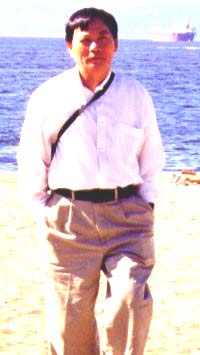 |
Geoffrey Hartman: Good afternoon. This is the second act of our conference. We have again three speakers, even though you only see two at the podium. Stanley Crouch is expected any moment, and the order will be Norman Manea, Leonard Michaels, and Stanley Crouch. Norman Manea is Writer-in-Residence and Professor of European Studies and Culture at critical pieces, but is mainly known for his fiction, including the volume October, Eight O'clock, which is autobiographical, or if you wish, semi-autobiographical fiction. So come up and talk to us? Norman Manea: It's a way of saying that I'm ready. I wonder if I will be able to add a lot to what was debated this morning. I would have pre- ferred we go on with that session—I think it was a very interesting one. I will speak from notes rather than from a paper. I hoped I could enter the debate more easily in that way. Had I prepared a subject, it would have been called "Biography as Language." I am a writer in exile, a writer who lost his language and, in a way, lost his biography with the language. However, I took the language, my home, with me, of course, just as a snail does. The Snail's Home. . . .You probably would have recognized that in what I would have had to say, a perspective of a snail in his home, and going out of his home to play the American alien. I think that the topic we are debating here was not chosen by chance by Partisan Review. Today we face an abundance of memoirs, biographies, and autobiographies in the cultural market. I'm not speaking about biographies written by professionals—some are certainly very good, challenging, useful—but about the current popularity of this type of writing produced by the public itself. It is probably an expression of popular democracy and popular culture, where everybody feels entitled not only to vote, or to acknowledge his or her rights in the public arena, but also to display his or her private persona in public. Unfortunately, at least in my view, this doesn't bring the most acute and interesting human issues of today to the forum. Rather, it's a way of providing raw and light reading material of accessible mass culture for the purpose of entertainment, even absentmindedness—too similar to the products of today's greatest trivializers, the TV and movie industry. |